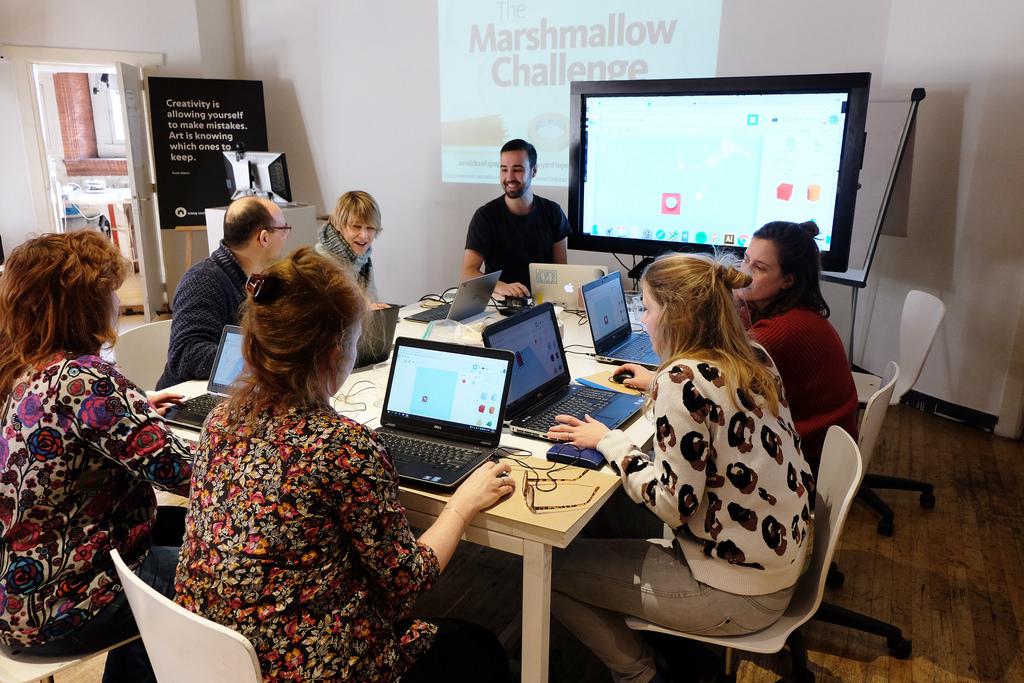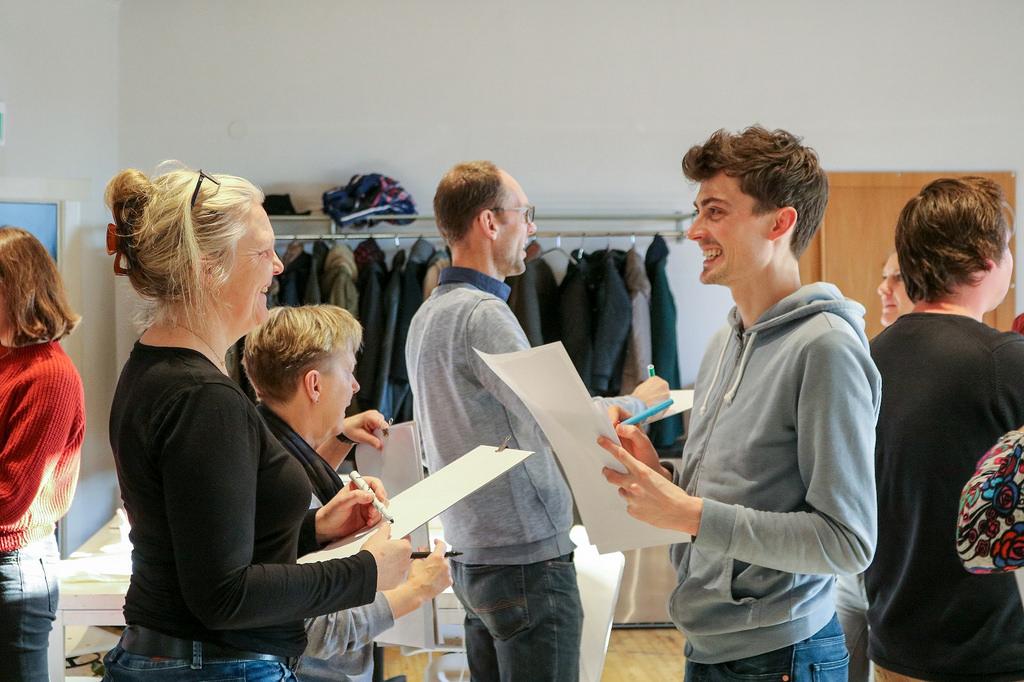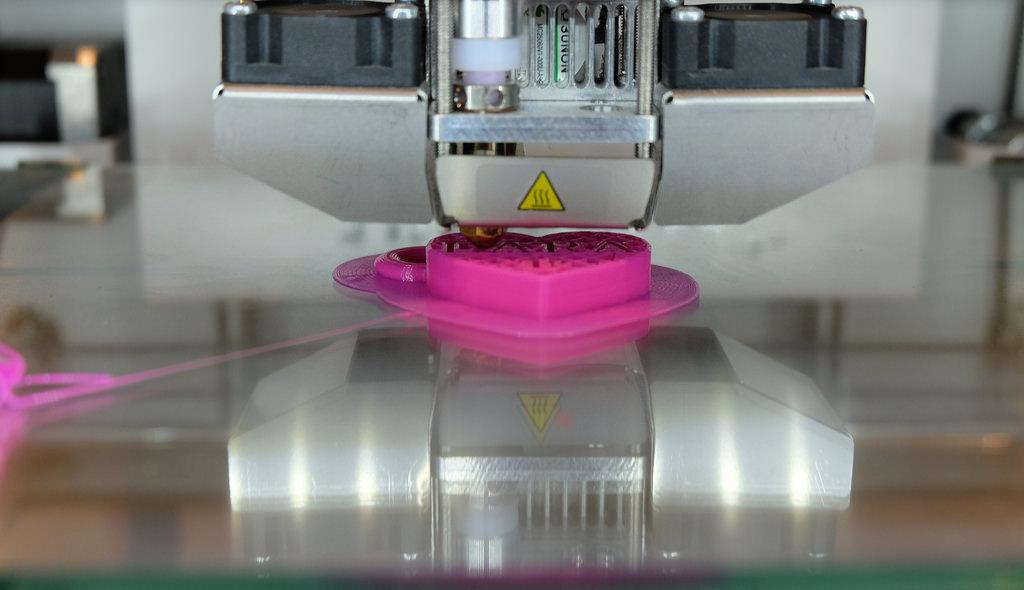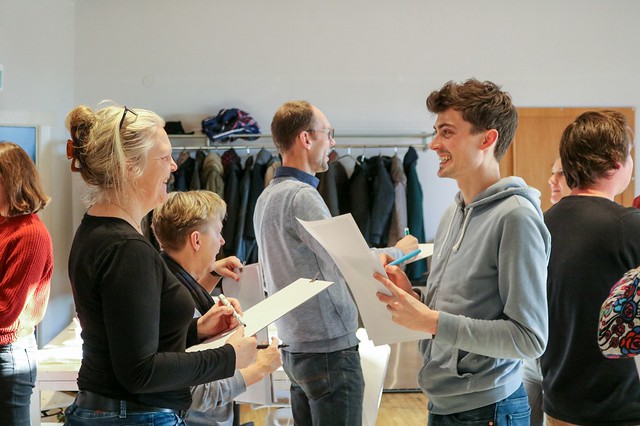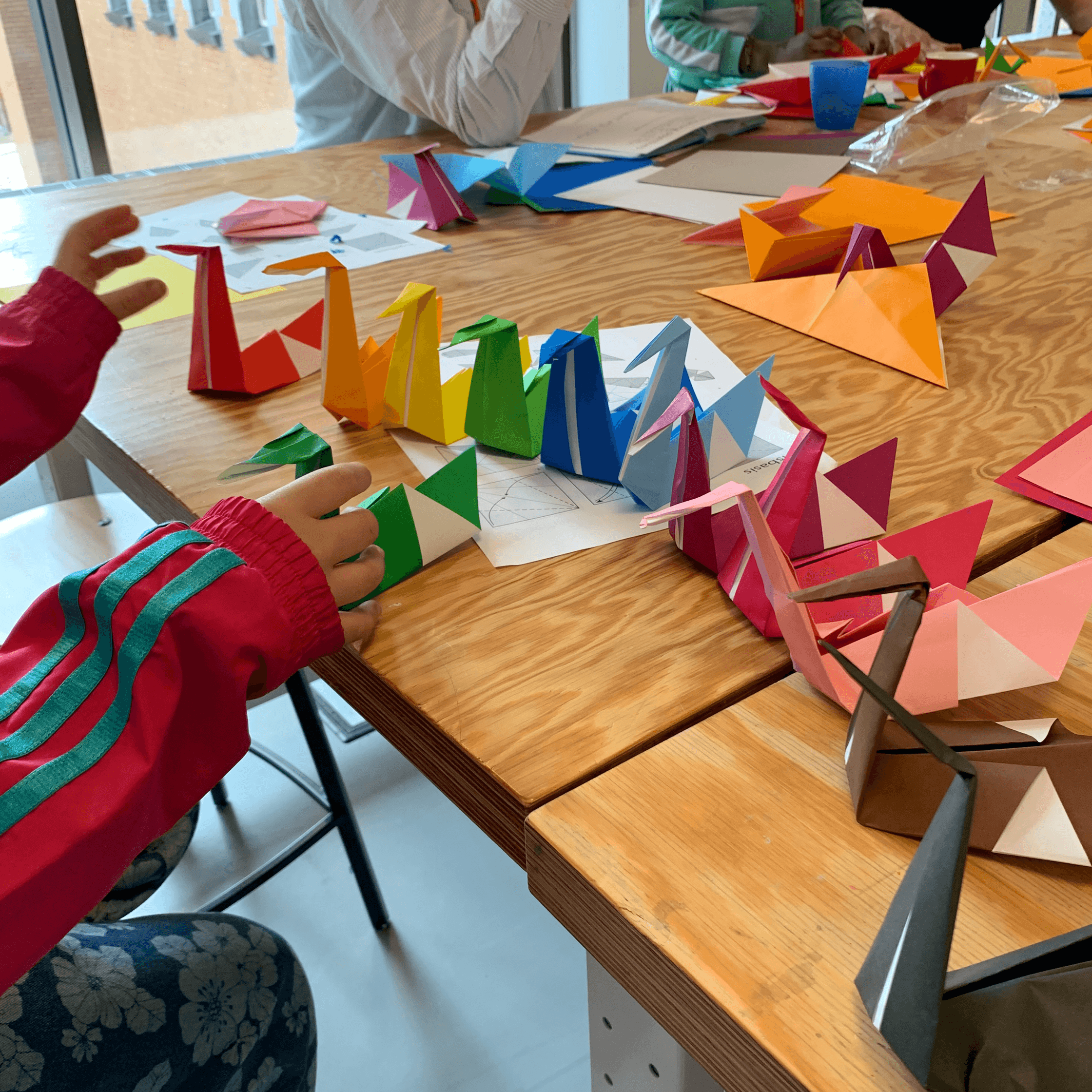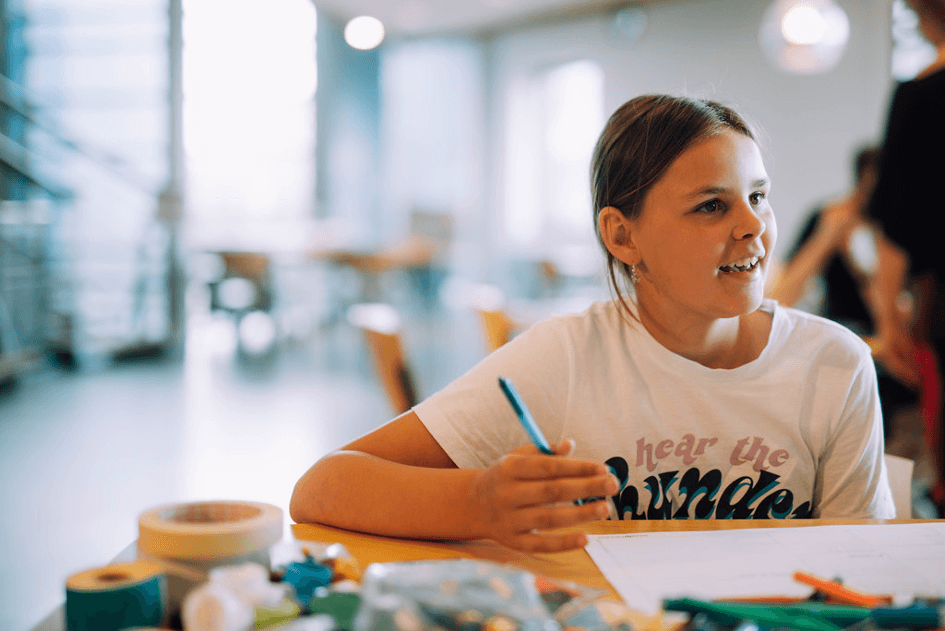As a kick-off to the 'Maakplaats' fellowship programme we showed teachers the possibilities of maker education and techniques such as 3D designing, programming and vinyl- and lasercutting.
For a full summary of the programme, please visit the Dutch version of this article. Or have a look at the photos of the event:
The Creative Learning Lab develops contemporary, exciting educational formats with experts from education, the arts and new media. They enable children to be creative, to gain sensory (learning) experiences, to express themselves and to be able to tell meaningful stories. They learn that technology is not sacred and the world a place that can be created, and in which they can develop an active, critical and self-sufficient role.
Maker education
Making has gained new meaning in today's society. Through the rise of the Internet, new making principles have been established. These principles are based on openness, transparency, and social connectedness. New professions arise on the boundary between virtual and physical reality. Enter, the crafts of the new century and the next phase of the digital revolution. With the advent of digital fabrication, physical products can now be created from digital files. Of course, human beings also want to give meaning to, and personalize their own products. When people are able to actively shape their environment, awareness of their actions increases. Thus, ownership and responsibility for the environment and life are likely to increase as well.
"What I hear, I forget. What I see, I remember. What I do, I understand." With this statement, Confucius illustrated an important principle 2,500 years ago: we understand the world better if we actively participate in it. In creating, we meet the world. We gain new experiences through creation, and learn about what works (and what does not). Making, therefore, leads to knowledge, insights, and opportunities.
Many teachers are reluctant to use technology in their classroom. They are not familiar with digital fabrication, programming, and physical computing. They might also not know about the possibilities these new technologies can offer to enrich lessons.
